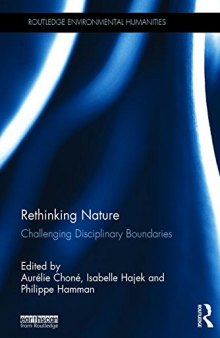 جزییات کتاب
جزییات کتاب
Contemporary ideas of nature were largely shaped by schools of thought from Western cultural history and philosophy until the present-day concerns with environmental change and biodiversity conservation. There are many different ways of conceptualising nature in epistemological terms, reflecting the tensions between the polarities of humans as masters or protectors of nature and as part of or outside of nature. The book shows how nature is today the focus of numerous debates, calling for an approach which goes beyond the merely technical or scientific. It adopts a threefold – critical, historical and cross-disciplinary – approach in order to summarise the current state of knowledge. It includes contributions informed by the humanities (especially history, literature and philosophy) and social sciences, concerned with the production and circulation of knowledge about "nature" across disciplines and across national and cultural spaces. The volume also demonstrates the ongoing reconfiguration of subject disciplines, as seen in the recent emergence of new interdisciplinary approaches and the popularity of the prefix "eco-" (e.g. ecocriticism, ecospirituality, ecosophy and ecofeminism, as well as subdivisions of ecology, including urban ecology, industrial ecology and ecosystem services). Each chapter provides a concise overview of its topic which will serve as a helpful introduction to students and a source of easy reference. This text is also valuable reading for researchers interested in philosophy, sociology, anthropology, geography, ecology, politics and all their respective environmentalist strands.



 دانلود کتاب
دانلود کتاب

 جزییات کتاب
جزییات کتاب

 این کتاب رو مطالعه کردید؟ نظر شما چیست؟
این کتاب رو مطالعه کردید؟ نظر شما چیست؟
